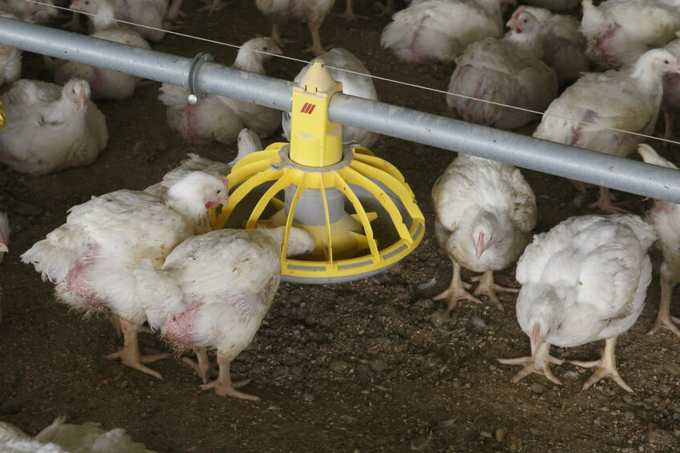May 29, 2025 | 09:53 GMT +7
May 29, 2025 | 09:53 GMT +7
Hotline: 0913.378.918
May 29, 2025 | 09:53 GMT +7
Hotline: 0913.378.918

Despite numerous challenges, South Africa’s poultry industry remains resilient. Photo: Hans Prinsen.
The domestic poultry industry is a R65-billion (€3.36 billion) strategic national asset, making it the country’s second-largest agricultural sector. Meanwhile, the poultry sector is South Africa’s largest employer, employing almost 58,000 people across the value chain.
While the industry currently slaughters 21.5 million each week, it has made significant investments to increase its slaughter capacity from 19.5 million birds per week to 22.5 million birds per week. The idle capacity is due to some farms still recovering from the 2023 highly pathogenic avian influenza outbreaks – many farmers are hesitant to overextend themselves in case of inevitable future outbreaks, and imports.
As the year unfolds, key issues such as the rollout of vaccination programmes, compensation for culling, fluctuating trade dynamics, and rising feed costs driven by a stronger dollar/weaker rand have dominated the agenda.
Avian influenza vaccination
Efforts to implement widespread vaccination against avian influenza and prevent a future influenza disaster have stalled. To date, no farm has been able to adhere to the stringent biosecurity protocols required for vaccination approval, which, according to SAPA, has created a dilemma for the industry. Without vaccination, the sector remains vulnerable, particularly while the risk indicator is in red.
The 2 highly pathogenic avian influenza strains involved in the 2023 bird flu outbreaks – the worst in South Africa’s history – were H5N1 and H7N6, a strain unique to South Africa. Currently, 3 H5 vaccines have been approved for import, but the mandated testing protocols mean that H7 vaccines are still months away from approval. “Weekly negotiations with the government continue, but a practical and implementable solution remains elusive,” says SAPA, adding that the industry continues to urge agriculture minister John Steenhuisen to intervene, compensate farmers for culled chickens, and facilitate vaccination.
“With Europe’s avian flu season starting early and spreading aggressively, and three more US States being shut down in the last month due to the virus, South Africa must prioritise vaccination to mitigate similar outbreaks, as the standard biosecurity protocols – stringent as these may be – are not sufficient to curb an outbreak,” SAPA emphasised.
Poultry imports
The poultry import landscape has shifted, notes SAPA. While total chicken imports rose from 2023 to 2024, imports of bone-in cuts declined. The increase was driven by mechanically deboned meat (MDM) and offal, which face no tariffs. “Argentina, exempt from anti-dumping measures, is the latest country to flood the South African market with cheap chicken, putting local producers under pressure,” it said.
With Europe battling widespread HPAI outbreaks, imports from affected regions, including the United Kingdom (UK) and Hungary, have decreased. However, tariff-free imports from unaffected regions persist, impacting local pricing and production.
Poultry exports
Progress has been made in opening export markets. Residue monitoring programmes have been submitted, and inspections by the UK and Saudi Arabia are anticipated in the coming months. These inspections are crucial steps toward gaining access to the UK, the European Union and Saudi Arabian markets, with cooked chicken products, such as breast meat, leading the charge. Exports of uncooked chicken to these markets are not anticipated at this stage.
Feed prices
The price of maize and soybeans – essential feed components – remains a concern. SAPA notes that 2024 saw improved operational efficiencies due to lower feed costs and reduced load-shedding, but challenges like deteriorating infrastructure and rising energy costs continue to strain producers. While the average producer price for broiler chickens increased in 2024, offering some relief, producers remain cautious, and with no vaccination protocols or compensation for culling, many farmers are hesitant to expand production, focusing instead on recovering from 2023’s difficulties.
A case for VAT-free chicken
South African consumers remain under significant financial strain, with retail price increases affecting food purchases. To address this, SAPA, in collaboration with the importers association AMIE and industry stakeholders, has requested VAT exemptions for frozen chicken cuts and offal. Such measures would provide much-needed relief to lower-income households while supporting local producers in an effort to supply cost-effective chicken products.
(PW)

(VAN) Vikas Rambal has quietly built a $5 billion business empire in manufacturing, property and solar, and catapulted onto the Rich List.

(VAN) Available cropland now at less than five percent, according to latest geospatial assessment from FAO and UNOSAT.

(VAN) Alt Carbon has raised $12 million in a seed round as it plans to scale its carbon dioxide removal work in the South Asian nation.

(VAN) Attempts to bring down the price of the Japanese staple have had little effect amid a cost-of-living crisis.

(VAN) Fourth most important food crop in peril as Latin America and Caribbean suffer from slow-onset climate disaster.

(VAN) Shifting market dynamics and the noise around new legislation has propelled Trouw Nutrition’s research around early life nutrition in poultry. Today, it continues to be a key area of research.

(VAN) India is concerned about its food security and the livelihoods of its farmers if more US food imports are allowed.